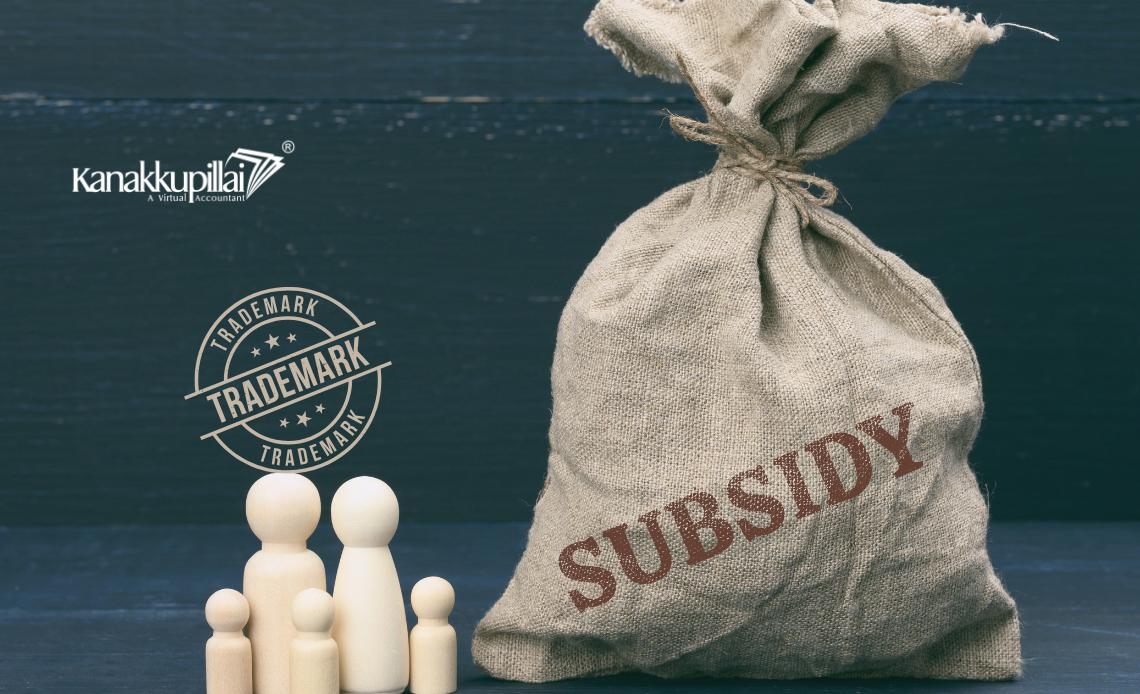The brand Subsidy for MSMEs is a government effort to help small companies. This grant aims to help Micro, Small, and Medium Enterprises (MSMEs) protect their brand name and intellectual property by giving financial aid for patent filing. This helps allow MSMEs to fight successfully in the market and grow their businesses.
What is MSME?
Micro, Small, and Medium Enterprises are categorised according to revenue and investment. The main organisation of the Indian government for supporting and expanding the MSME sector is the Micro, Small, and Medium Enterprises (M/o MSME) organisation. Starting on July 1, 2020, MSMEs will have the following new definition:
- Micro Enterprises: Up to ₹1 crore in revenue and ₹1 crore in investment.
- Small Enterprises: Sales up to ₹50 crore and investments up to ₹10 crore.
- Medium Enterprises: Up to ₹250 crore in revenue and ₹50 crore in investment.
This new description aims to assist and help the growth of MSMEs in India.
What is Trademark Subsidy?
The trademark subsidy is a monetary help the government gives to Micro, Small, and Medium Enterprises (MSMEs) for trademark filing. This grant aims to lessen the economic load on MSMEs when getting legal protection for his or her brand name and creative assets. Under this plan, approved MSMEs can receive of a 50% discount at the professional rates for brand filing. The aid is a part of the authorities’s efforts to help the growth and power of the MSME zone, which forms the backbone of the Indian economy. By making trademark registration greater on hand, the grant allows MSMEs to build a strong brand image and protect their ideas.
Benefits of Trademark Subsidy
The brand grant for MSMEs offers several perks, including:
- Exclusive Ownership Rights: MSMEs gain exclusive rights over their brand name, picture, or sign.
- Effective Marketing: Trademarks are vital for making clearly recognizable pictures, which play a key role in marketing strategies.
- Protection Against Infringement: Registration saves the company image, ending illegal use and copies.
- Brand knowledge improves the trustworthiness and exposure of your goods or services, thereby allowing people to find and believe in them more easily.
- Promotes Business Expansion: Trademarks provide the way for companies—inside India or abroad—to grow their operations.
- Safeguards kindness and Credibility: Businesses can protect their hard-earned kindness and credibility, boosting trust among customers.
- Enhanced Product and Service Differentiation: Trademarks help customers identify a brand’s goods and services from rivals, supporting trust.
Eligibility Criteria
To be qualified for the patent grant, MSMEs must meet specific standards. The key condition is an income of less than ₹50 crores. This means that MSMEs with an income of ₹50 crores or less are qualified for the grant. The grant is meant to support small businesses and help them protect their intellectual property rights without paying high costs. By giving a 50% discount on official fees for trademark registration, the government wants to help MSMEs build a strong brand image and fight successfully in the market.
How to Apply for Trademark Subsidy?
MSMEs may apply for the brand award via the Udyog Aadhaar Memorandum (UAM) platform. Here is a detailed instruction:
- Confirm yourself: Use your MSME Registration Number and Mobile No. to confirm yourself on the UAM page.
- File Application: Fill out the application form and send it on the UAM page.
- Upload Required papers: Attach the necessary papers, including the Udyam Registration Certificate, PAN, and proof of business registration.
- Submit Application: Review and submit the application.
- Wait for Approval: The UAM site will process your entry and provide an answer within 30 days.
Additional Tips:
- Ensure quick application and document filing to avoid delays.
- Verify the appropriate standards before applying.
- Keep a record of your application and related files for future reference.
Documents Required
To apply for the trademark grant, MSMEs must send the following papers through the Udyog Aadhaar Memorandum (UAM) portal:
- Udyog Aadhaar Memorandum (UAM): This paper serves as proof of MSME registration and is important for showing qualifying for the grant.
- For the MSME, a copy of the PAN card would be needed as name proof.
- Based on the kind of business organization, this might include a Certificate of Incorporation, Partnership Deed, or any other paper showing the formal presence and filing of the MSME.
- Though not needed, having a JPEG or PNG picture of the brand or image can help in speeding up the application process.
Timeline
The plan for the release of the patent grant is important for MSMEs. The grant is paid within 30 days of the application, giving quick help for MSMEs to protect their business name and intellectual property. This fast payment process helps MSMEs to quickly build a strong brand image and fight effectively in the market.





